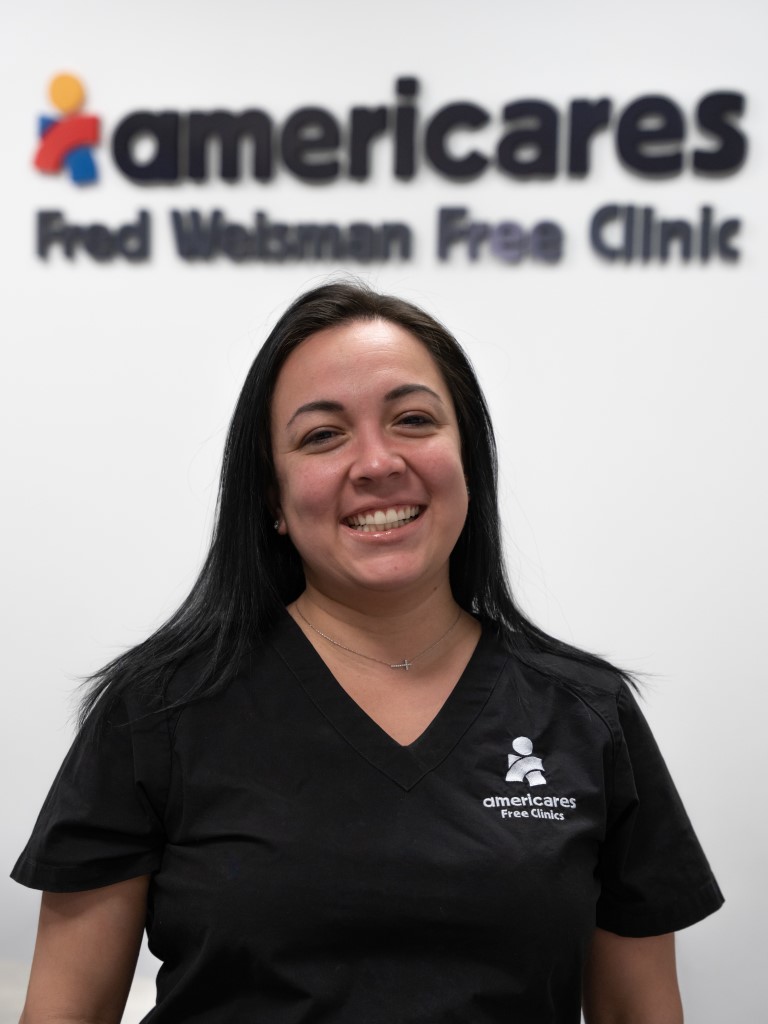
There are new faces at each of Americares Free Clinics — and they’re filling a new role: medical assistant. Think of the new staff members as professional patient guides who complete patient intake, conduct basic tests, and help with phone calls and screening as well as telehealth. An added plus: The assistants are bilingual.
The Free Clinics have had the benefit of volunteers to handle many of these duties, but as volunteer hours have decreased since the pandemic began, Americares clinic directors and nursing staff found themselves short staffed and increasingly busy. “The medical assistant strengthens our team,” says Jennifer DaSilva, director, Americares Weisman Free Clinic of Bridgeport. “Now we can each manage our patient care more efficiently, and the flow of the clinic is more fluid.” Currently, the medical assistants are Tatyana Aguirre in Bridgeport, Cina Ferreira in Danbury, Clara Gonzalez in Stamford and Paulina Gonzalez in Norwalk.
The clinic directors experience the benefits every day. “Directors are not only responsible for the nursing component but also daily operations, which are multifaceted,” says DaSilva. “For example, with the medical assistants on board, we can more easily spend time away from the clinic in meetings with our community care partners.”
The medical assistants are also helping the clinics move into their new practice model, made possible by electronic health records. Now, patients at all four clinics can access a robust audiovisual telehealth platform through AthenaNet, our electronic health record platform. In order for the system to work effectively, it is crucial patients understand how to access it on their smartphone, and medical assistants are experts. “Our medical assistant has also spearheaded our RetinaVue program,” says DaSilva. The assistant uses the RetinaVue equipment to screen patients for diabetic retinopathy and sends the images to the ophthalmologist for reading.
“Every day I learn something new,” says Tatyana Aguirre, who brings over a decade of experience as a medical assistant to her role. “I’ve gotten to know my patients and families and the hardships they face.” When she is able, Aguirre helps patients address social determinants of health — barriers to health such as transportation or food insecurity. The value of quality, compassionate care is important to her. “My parents are immigrants, and I wish someone would have helped my mother in this way when she needed medical treatment,” says Aguirre, “even just someone to speak with.”